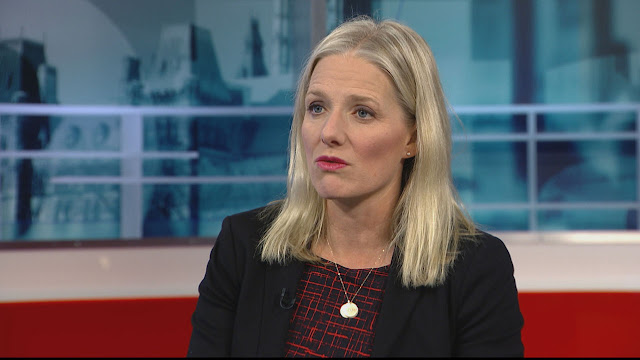Catherine McKenna and the trouble with quilted toilet paper
©
I appreciate toilet paper as much as the next person. Just not the thick, quilted kind. Since moving to a farm with a septic field we’ve switched to thin, single-ply paper. It took a while to get used to it. Only when we go to town do I realize how much I dislike the thick stuff.
We humans use about 84 million rolls of toilet paper—a day. Most of this paper comes from mature forests. Americans are the biggest users of toilet paper (no surprise, as they invented the stuff), followed by the Brits. In Europe toilet paper is a growth market projected to grow by 40 percent. Think ‘designer-black’ toilet paper.
Most people use as much quilty-thick stuff as they would single-ply. We use toilet paper by the sheet, about 57 sheets a day per person. If we cut the thickness in half, we’d save half of the 270,000 trees we cut a day for TP. It’s good for our forests, good for lowering CO2, good for reducing waste, and better for our bottoms, too.
Not only that, using fluffy toilet paper with embossed patterns irritates our sensitive parts. It’s bad for hemorrhoids, and worse. Most white toilet paper is bleached with chlorine dioxide, a process that creates dioxins and furans. Even low levels of these chemicals are proven to cause cancer, hormone imbalances, immune disorders, reduced fertility and even birth defects. Of all bleached papers, TP has the highest concentrations of these toxins. And it’s not just bad for our bums. Making it and disposing of it is bad for every other living thing. Dioxins, which include PCBs, are among the most toxic man-made chemicals ever created. We’re talking a serious environmental hazard. Natural bacteria simply can’t break them down.
What has toilet paper have to do with Catherine McKenna? Well, she’s our 19-month old federal minister of the environment—and climate change. If anyone could introduce responsible toilet paper manufacturing legislation, it would be her. McKenna is smart. She did her undergrad in French and international relations at U of T, did her masters at the prestigious London School of Economics and finished up with a law degree from McGill. She co-founded Canadian Lawyers abroad, an organization that does free legal work in developing nations. She lectures at the U of T’s Munk School of Global Affairs, and has practiced law in international competition and trade. Among other things. So, it’s safe to say she’s among our best and brightest.
And she’s making progress. Her team is working on a $50 per tonne carbon tax to help mitigate climate change (although many environmentalists think is not nearly enough). She’s announced the end of coal-fired electrical power by 2030 (she says that there’s good money in going green, $23 trillion globally, in fact, and she wants Canadians to get a piece of the action). And she’s committed to the Paris commitment to help limit global warming to 1.5ºC.
But. She’s announced that Canada will delay action—by two years—on forcing oil producers to cut back methane emissions by 40 to 45 percent by 2025. She’s announced the go-ahead for three major pipelines connecting Alberta’s oils sands to the coast, including the controversial XL Pipeline that Obama vetoed. Talk about increasing our carbon footprint.
This is all bad news for climate change. And her Liberal government has reneged on its promise to allow First Nations to veto resource projects through their traditional lands. Then there’s the failure of the Libs to reintroduce legislation to protect Canadian lakes and rivers stripped away by Harper’s bunch. On top of that, she’s being sued by an environmental group working to protect woodland caribou.
There’s a lot coming at her head. So I doubt we’re going to see any thinking about toilet paper consumption anytime soon. Meanwhile, poisonous glyphosate herbicide is still being sprayed on New Brunswick forests, our trees are getting smaller, while just 105 Irving employees roll out 80,000 tonnes of Majesta paper products a year.
The point being, as smart as Catherine McKenna is, and as focused a business as Irving Tissue is, there is no one in control. The system is actually running itself. We. Just. Need. More. Toilet. Paper. Please. The economy must grow on, the environment be damned.
At the very least using unbleached, single-ply TP would be a good bet. If you can find it on the shelves.
Additional reading:



Gerald, do you know if glyphosate is being sprayed in the other provinces as much as NB or if at all? I'm sure that was somewhat the cause of the death of my dog. I used to walk him along the railway track in St. Stephen and every year they posted small signs that it had been sprayed and not long after, the weeds and growth along the tracks all died. Anne H.
ReplyDeleteAs far as I can tell, only Quebec has a ban. Here's a piece of scientific apologetics from Natural Resources Canada (which has an interest in maintaining the forest products industry and supporting artificial forest monoculture).
ReplyDeletehttp://cfs.nrcan.gc.ca/pubwarehouse/pdfs/32344.pdf